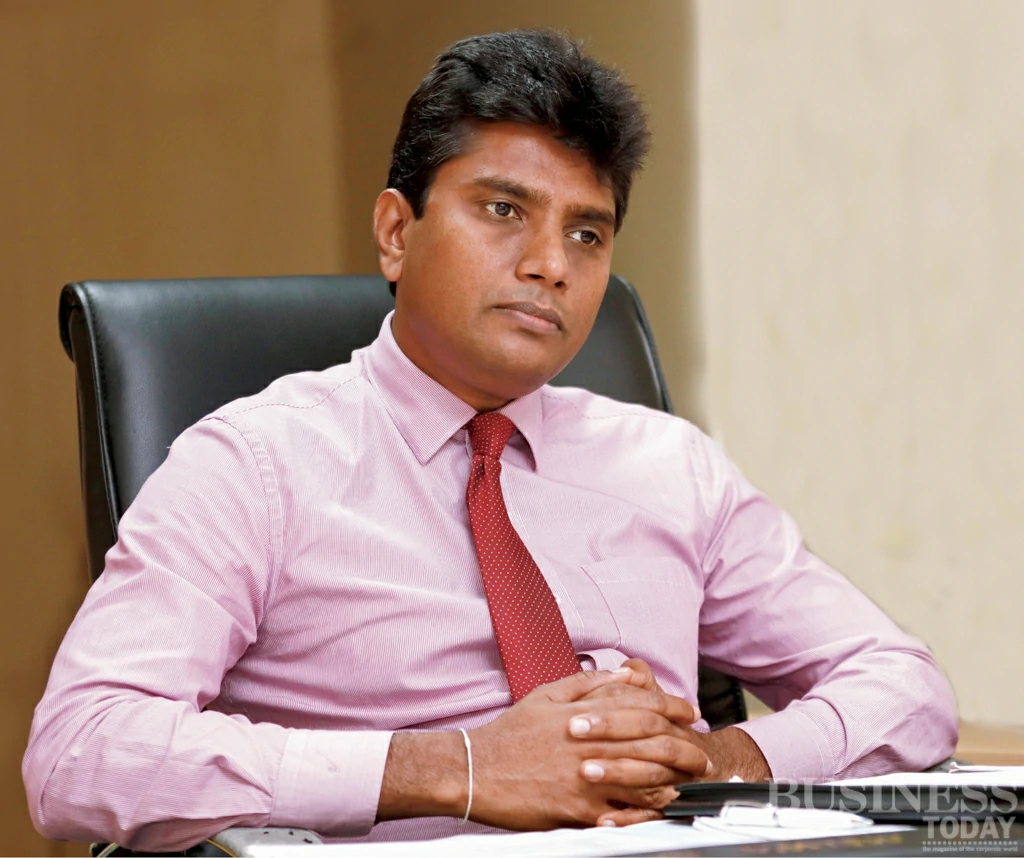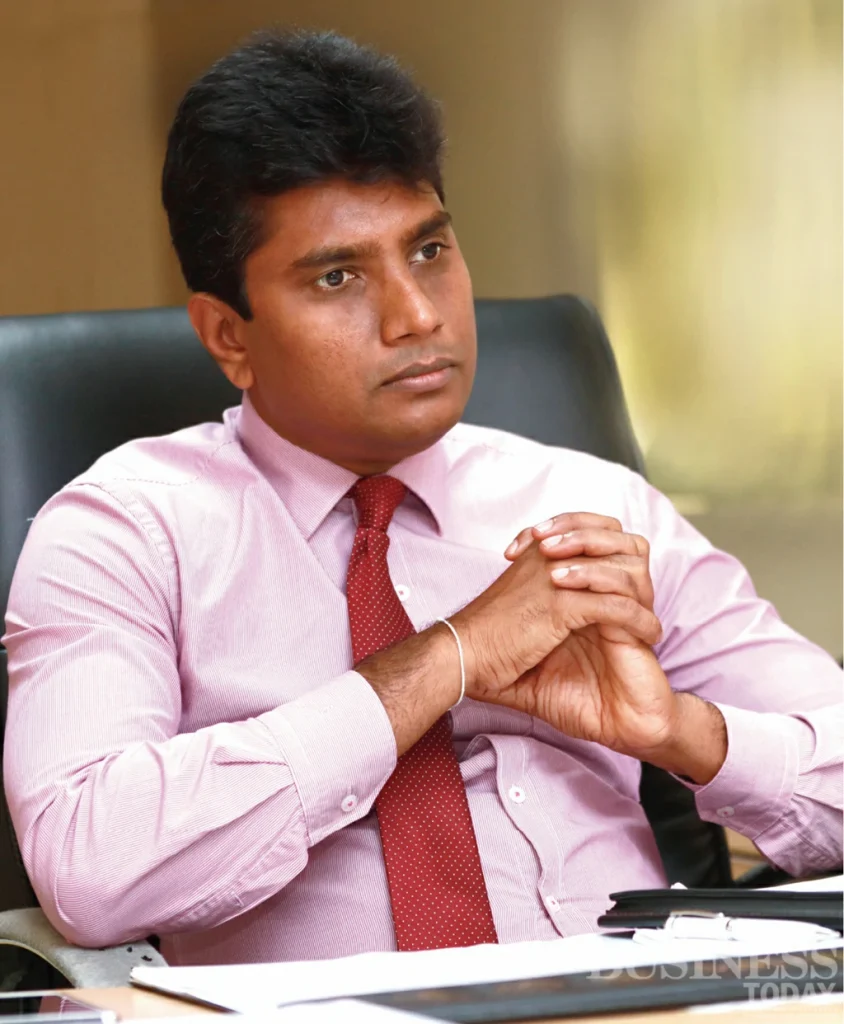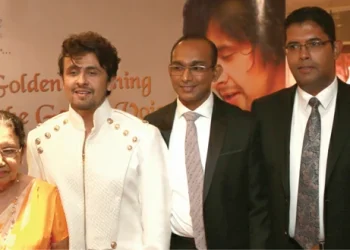
The Heart to Heart Trust Fund is a beacon of hope to financially impoverished heart patients across the country. When treatment is beyond their financial means, the fund revives their hopes by providing financial assistance for cardiac surgery. Dr Rajitha Y De Silva, Consultant Cardiothoracic Surgeon, Sri Jayewardenepura General Hospital discusses the importance of financially assisting impoverished heart patients to help save their lives and brighten their tomorrow.
By Darrshini Parthepan
Photography Vishwathan Tharmakulasingham and Geeth Viduranga
What is the inspiration behind the Heart to Heart Trust Fund?
The Heart to Heart Trust Fund was co-founded by Dr Ruvan Ekanayaka and myself. Heart diseases have become one of the most common causes of death across the world. Even in Sri Lanka cardiovascular disease is the most common cause of death for both men and women. Most heart related conditions demand complex as well as expensive medical interventions that include stent placement and bypass operations that need to be performed without delay to save the life of the patient. Immediate treatment thus becomes a matter of urgency, in fact a matter of life and death.
A financially disadvantaged patient unable to afford the high fees levied in the private sector naturally takes recourse to an appropriate non fee levying Government hospital where both open heart surgery as well as percutaneous coronary interventions (PCIs) which are non surgical such as angiogram, angioplasty, ablation, stent placement and implantation of pacemakers are performed at the national hospital in Colombo (the NHSL) and at the teaching hospitals of Kandy, Galle and Jaffna while Percutaneous coronary interventions (PCIs) such as stent placements are undertaken in Kurunegala, Anuradhapura and Polonnaruwa as well. Where children are concerned, cardiac surgery is undertaken at the non-fee-levying Lady Ridgeway Hospital (LRH) for children in Colombo.
As the Government is also investing in the healthcare sector to enable free healthcare facilities for patients including those with heart disease, can you elaborate on the manner in which the Trust is working to supplement or complement the services offered by the Government?
At the very outset we must remember that Sri Lanka stands well ahead of most developing countries where access to cardiac care, cardiac surgery and minimally invasive procedures such as PCIs are concerned. Whereas even in developed countries like England and Australia there is usually a waiting list of about a month or two and sometimes more for cardiac surgery; there are large parts of India where people have no access whatsoever to cardiac surgery while there are many countries in Africa where there is no cardiac surgery available at all. Our problem in Sri Lanka is the long waiting list for cardiac surgical intervention in the non-fee-levying Government hospitals – often one year or more at the NHSL and two years or more in Kandy, Galle and Jaffna. The long waiting list in the Government sector for cardiac surgery where timely surgical intervention is of the essence is the outcome of a combination of three factors – an inadequate number of ICU beds and operating theatres for cardiac surgeons and catheterization laboratories (Cath Labs) for cardiologists to perform percutaneous interventions such as stent placement (stenting), placement of artificial pacemakers and a highly inadequate number of cardiothoracic surgeons – a mere 13 in the whole Government sector. In Australia, which has a population similar to that of Sri Lanka, there are about 200 qualified cardiac surgeons while of course in many developing countries there are none at all.
I Have Seen Patients Going Through Emotionally Traumatic Situations When They Face Financial Difficulties To Obtain Treatments. For Me, As A Doctor, Such Experiences Have Been Devastating.
Hence, when a long date is given to a heart patient where fast and timely intervention is of the essence to win the battle between life and death, the only available option then is to seek treatment in a fee levying hospital. In such instances, the cost to the patient – depending on the technique used in the case of surgery (keyhole/off pump/on pump) and post operative clinical complications if any – could roughly be anything between 550,000 rupees and 900,000 rupees in a private hospital, the comparative cost to the patient in the fee-levying semi-Government Sri Jayewadenepura General Hospital (SJGH) could be lower – varying between 350,000 rupees and 550,000 rupees on average in most cases.
The better off patients then naturally go to the private healthcare sector which has seven cardiac surgeons (including Indian surgeons) working full-time in addition to the Government sector cardiac surgeons who work in private hospitals in their non working hours after 4pm. To settle for this option and save their lives, financially impoverished patients can access assistance amounting to 200,000 rupees from the President’s Fund after going through a long and tiresome application procedure.
And this is where the Heart to Heart Trust Fund comes in. We provide financial support of another 150,000 rupees to 200,000 rupees and sometimes even more to patients who are supported by the President’s Fund as this will enable them to mobilize where possible the required balance from their own meagre resources. As a Cardiothoracic surgeon with years of experience, I have seen patients undergoing emotionally traumatic experiences when grappling with financial difficulties to obtain timely treatment to save their lives. For me, as a doctor, such experiences have been devastating.
It was when I was working as a cardiac surgeon at the General Hospital in Colombo that I came face-to-face with this reality and it was through these disturbing experiences that I developed the concept of evolving a fund to help poor patients to access cardiac surgery from the fee-levying sector in situations where waiting patiently for one’s turn on the long waiting list in a Government hospital could be fraught with risk and danger. Dr Ruvan Ekanayaka, the then Consultant Cardiologist at the General Hospital in Colombo shared with me the same vision of wanting to save the lives of impoverished heart patients, and together we established the Heart to Heart Trust Fund in 2014. It is our belief that no heart patient in our country should lose his or her life on account of financial impoverishment. This is the noble thought that gives life and blood to the Heart to Heart Trust Fund.
I Came Face-To-Face With This Reality And It Was Through These Disturbing Experiences That I Developed The Concept Of Evolving A Fund To Help Poor Patients To Access Cardiac Surgery From The Fee-Levying Sector In Situations…
What are the common causes of heart disease in Sri Lanka?
In our country the major cause of cardiovascular disease is the contemporary lifestyle of our people. Demographic changes in the past few decades and their associated social and economic changes such as a rapidly rising level of aspiration, a highly competitive and at times near desperate struggle for limited resources, social isolation associated with urban migration and the breakdown of traditional support networks such as the extended family and an increasing breakdown of the nuclear family itself especially in the urban environment, the disintegration of traditional community structures and such leading to a stressful rather than a relaxed contented life, together with fast food, an unhealthy diet, smoking and the consumption of alcohol, the inability to cope with multiple demands-all indicators of an unhealthy contemporary lifestyle-pose a danger to one’s health and provide the root cause of heart disease in our country.
Stress is a most important risk factor for heart disease. Long-term stress can elevate blood cholesterol levels and blood pressure. We have come across many heart patients having had no risk factor other than stress. Diabetes which has assumed near epidemic levels in the South Asian region is yet another cause of serious cardiac disease.
Administering a charitable fund of this magnitude requires both the dedication of its members as well as a constant flow of resources. Can you elaborate on the manner in which the Heart to Heart Trust Fund is operating?
Under the guidance of our Board of Trustees composed of eminent persons with a track record of reliable integrity, we always ensure the highest level of transparency in our operations. The Trustee Board is composed of both medical and non medical persons who represent various professional fields such as law, medicine, diplomacy, corporate business and the social sciences.
Representing the medical field on the Board are Dr Ruvan Ekanayaka, Senior Consultant Cardiologist, Dr Rajitha Y De Silva, Consultant Cardiothoracic Surgeon, Dr Aruna Kapuruge, Consultant Cardiothoracic Surgeon, Dr Mahendra Munasinghe, Consultant Cardiothoracic Surgeon, Dr Kanishka Indraratne, Consultant Cardiac Anaesthetist, Dr Ravi Pillai, Senior Consultant Cardiothoracic Surgeon as well as Dr Athula Kahandaliyanage, Chairman, Sri Jayewardenepura General Hospital.
The non medical persons representing other disciplines and professions on the Board are Ambassador Jayantha Dhanapala, former UN Under-Secretary-General, Palitha Fernando PC, former Attorney General, Arunashantha De Silva PC, Former Legal Draftsman, Mahendra Amarasuriya, Senior Banker, Philanthropist and Former International President, Lions Club International 2007/08, Dr Kumari Jayawardena, Author/Social Worker, Sudath Tennakoon, Chairman, Central Bearings, Lt Gen (retd) Jagath Dias, former Chief of Staff, Sri Lanka Army and Sunimal Fernando, Senior Sociologist who also guides the trust fund while representing diverse fields of specialisation.
Apart from the members of our Board, we have received dedicated service and support from all our volunteers among whom I would like to mention Sister Champa Samarasinghe, Sharmeen and Kareem Amath and our Honorary Executive Coordinator Shanti Fernando.
Since we are managing funds and donations, maintaining the highest possible level of transparency is a major factor contributing to our success.
Since We Are Managing Funds And Donations, Maintaining The Highest Possible Level Of Transparency Is A Major Factor Contributing To Our Success.
We have three sources of funding; donations from individuals, institutional and corporate entities and fund raising events, organised by our highly committed group of volunteers, most of whom were once heart patients who have now fully recovered and work hard when required, to reach our goals and objectives. In addition, we also raise funds by working in collaboration with organisations such as the Lions Club. The Abhayadanaya Programme is yet another fundraiser we have organised. We have supported more than 160 heart surgeries through our trust fund.
When examining the eligibility of patients to receive financial support, we prioritize their clinical urgency and financial background. We give priority to breadwinners of families as there is an enormous responsibility on their shoulders. A breadwinner can usually get back to a normal life two months after an open heart surgery or two weeks after a keyhole cardiac surgery, fend once again for the family and contribute at the same time to the national workforce.
At the moment, our office is situated at the Sri Jayewardenepura General Hospital (SJGH). Today we can proudly say that with the financial assistance provided by the trust fund, not a patient requiring heart surgery is turned away from the fee-levying SJGH because they cannot afford the cost. We are now in a position to extend our financial assistance on the same terms to financially disempowered patients in other private hospitals requiring urgent cardiac surgery.
What is the Abhayadanaya Programme?
A cardiac patient represents a life that is struggling between life and death. In the absence of timely surgery, there is a great chance that the patient will not survive. Intervening with financial assistance to facilitate a heart surgery could very well negate death and save the life of the patient concerned – a spiritually rewarding act indeed on the part of the donor. This is the meaning of Abhayadanaya. What better way to commemorate an event or anniversary or celebrate a wedding or birthday than to save the life of a cardiac patient with a part of the money that would otherwise be spent on jollity and wasteful indulgence on that day?
Individuals, groups of persons, institutional entities and corporate entities can sponsor or partially sponsor financial assistance to individual patients needing financial assistance to meet the cost of a cardiac surgery. The fund arranges direct contact and face-to-face communication between the patient and the sponsor/ group of sponsors. They can meet the patient in hospital and personally hand over the money to him/her, thereby helping redeem the life of a heart patient through cardiac surgery.
We find compassionate individuals and/or groups of individuals such as a batch of students or alumni sponsoring or partially sponsoring individual patients through the Abhayadanaya Programme on birthdays, anniversaries and other such special occasions. Corporate and institutional entities can do so on special occasions such as an annual general meeting or at the launching of a new venture. For the patient or patients concerned, this is an intensely emotional and invigorating experience when they find a compassionate individual or individuals coming to their bedside, caring for them and handing over a contribution towards meeting the cost of a cardiac surgery that will surely redeem their life.
This innovative programme has proved to be very popular.
Could you tell us about your role in the Heart to Heart Trust Fund and your career as a Cardiothoracic Surgeon?
I am working hand in hand with Dr Ruvan Ekanayaka to realise the objectives of the Heart to Heart Trust Fund. Currently, I am working as a Cardiothoracic Surgeon at Sri Jayewardenepura General Hospital (SJGH). I studied at Dharmasoka College, Ambalangoda and completed my graduate studies at the University of Ruhuna. Upon completion of the final MBBS examination, I started my internship at the General Hospital in Colombo under the tutelage of two of the best clinicians at that time – Dr Janapriya, Consultant Surgeon and Dr Sivakumaran, Consultant Physician. Since I always wanted to become a cardiac surgeon, I decided to pursue my specialisation in the area of cardiac surgery. I began my cardiac surgical training with Dr Chandima Amarasena, Consultant Cardiothoracic Surgeon. A beating heart is the symbol of life. The fixing of an ailing heart is therefore the saving of a life which is the greatest satisfaction that I as a doctor can receive.
After completing my Master’s I focused more sharply on cardiothoracic surgery. I then joined the Basildon-Essex Cardiothoracic Centre in the UK to receive extensive training in this field. Even though I had the opportunity to join the Medical School of Oxford University, I opted to join the Essex Cardiothoracic Centre as they offered advanced training facilities in keyhole cardiac surgery. A landmark achievement in my career was when I was able to obtain the Fellowship of the Royal College of Surgeons in Cardiothoracic surgery (FRCS C-Th), which is the most esteemed internationally recognised qualification in the field of cardiothoracic surgery. I have visited most of the leading centres of excellence in keyhole cardiac surgery in numerous developed countries such as Austria, Germany, USA and France to observe the best state-of-the-art practises in this field.
We Are Still A Very Young Initiative. In The Four Years Of Our Existence, We Have Embodied A Great Deal Of Experience In Both The Medical And Non Medical Dimensions Of Successfully Managing A Charitable Initiative Targeting Financially Disempowered Cardiac Patients In The Real Life Context Of Sri Lankan Society.
Moving forward what is next for the Heart to Heart Trust Fund?
We are still a very young initiative. In the four years of our existence, we have embodied a great deal of experience in both the medical and non medical dimensions of successfully managing a charitable initiative targeting financially disempowered cardiac patients in the real life context of Sri Lankan society. We have now reached the first milestone in our journey. No patient needing cardiac surgery, however poor he or she may be, is turned away from the fee-levying Sri Jayewardenepura General Hospital (SJGH) because they cannot afford the cost of a surgery. We are therefore now ready to extend our fund to support financially dispossessed heart patients in other private hospitals as well.
We also hope, funds permitting, to help prevent the occurrence of heart disease by conducting educational programmes at community level in different parts of the country.
We also have a rather distant dream of raising funds to support Government hospitals improve their facilities such as their ICU capacity, the number of cardiac operating theatres and catheterization laboratories (Cath Labs) so that the long waiting lists could be that much shortened provided of course more and more doctors in our country are trained in cardiothoracic surgery.
We also entertain a very far distant dream of one day helping some of the poor countries in Africa, which have no cardiothoracic facilities at all to set up their own cardiac centres by providing technical guidance to their hospitals and training for their doctors. And who knows, in the still more distant future we may even be able to think of a cardiac charity hospital to be run on the lines of similar charity hospitals in other parts of the world.
But we shall take one measured step at a time, consolidating our experience and treading diligently and realistically along the road ahead without losing the perspective of the goals and objectives for which the Trust was formed and the ground realities of the Sri Lankan environment.
To consolidate the activities of our Heart to Heart Trust and to broaden its scope to support greater numbers of financially deprived heart patients access to cardiac surgery which alone could save their lives, we need the support of more and more compassionate donors – individual, institutional and corporate. And from our present experience, we can confidently say that as greater numbers learn of our charitable Trust and its activities, more and more compassionate donors will come forward to save the lives of our country’s cardiac patients who are too poor to afford the cost of cardiac surgery.
heart2hearttrustfund@gmail.com
heart2hearttrust.org






